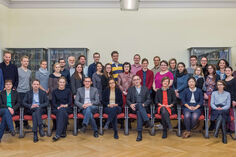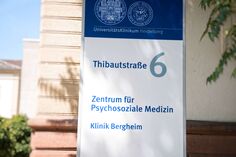Hypersensitivity to social threat, anger, and aggression in patients with borderline personality disorder, part II.
Leading investigators: Sabine C. Herpertz, Katja Bertsch
Further researchers: Corinne Neukel, Karen Hillmann, Falk Mancke, Mike Schmitgen
Cooperations: Martin Bohus (Mannheim), Christian Schmahl (Mannheim)
Duration: 2015-2018
Funding: DFG Clinical Research Group (KFO 256): Mechanisms of disturbed emotion processing in borderline personality disorder
Effects of a six week group psychotherapy program on processes underlying anger and aggressive behavior in patients with Borderline Personality Disorder
Based on our former research we know that patients with Borderline Personality Disorder are hypersensitive for social threat, that they show a tendency to rather approach than avoid social threat, that they have difficulties in regulating their emotions and that they show high simulation of the emotions of others. As a consequence they often experience intense feelings of anger or other negative emotions and high levels inner tension. Sometimes they also show aggressive outbursts including breaking things or in some cases even attacking others which has a particularly negative influence on their social relationships. As a consequence, individuals with a Borderline Personality Disorder often suffer from these aggressive outbursts.
In our study, we therefore plan to investigate anger and aggression in patients with Borderline Personality Disorder more precisely. Especially, we aim to test the effectiveness of two different psychotherapy programs that target at reducing feelings of anger and aggression. Both programs include twelve group therapy sessions over a period of six weeks. Before the therapy program starts and after it is completed, participants take part at a few short tasks in the laboratory to investigate their reaction to different social cues, such as emotional facial expressions. Additionally, two tasks take place in a MRI scanner as we are interested in the effects of psychotherapy on the brain. We therefore investigate the activation in the brain during the participants’ perception of facial expressions and the imagination of conflicts with others.
With this study we aim to gain more information about anger and aggression in patients with Borderline Personality Disorder. We are especially interested in how patients can learn to better regulate feelings of anger and aggression and which treatment programs are helpful.




